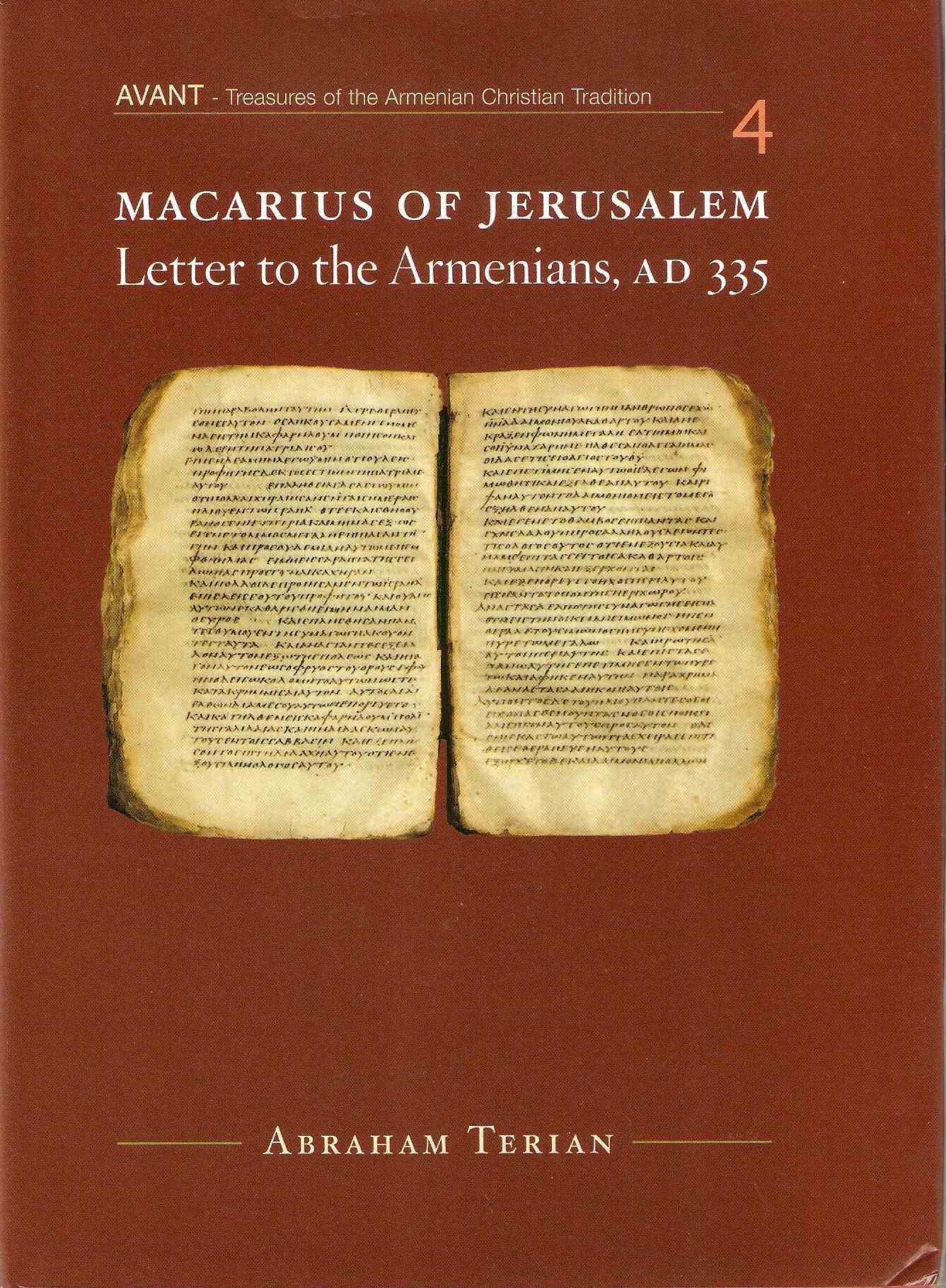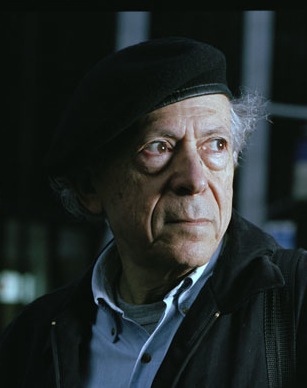
Letters To The Armenians
Armenian News Network / Groong
December 17, 2010
By Arthur Hagopian
JERUSALEM

|
|
Macarius Of Jerusalem Letters To The Armenians |
The armies had left behind colonies of Armenians whose numbers were constantly replenished and augmented over the years, but few, if any, of the records they must have kept over the years, have survived.
One such exception is a letter from a Byzantine bishop, unearthed recently by leading Armenian scholar, Prof Abraham Terian.
The letter was written in Greek, but it is its Armenian translation that has survived, making it one of the most important discoveries concerning Armenian Jerusalem ever made.
According to Terian, this is "the earliest complete writing from Jerusalem this side of the New Testament."
The internationally acclaimed Terian, a former "Kaghakatzi" (native of the Old City of Jerusalem), dates the document to the year AD 335, a little over 30 years after Armenia became the first nation in history to accept Christianity as a state religion.
The letter was penned by Macarius, bishop of Jerusalem, who had been commissioned by Emperor Constantine to oversee the construction of the church of the Holy Sepulcher. And it is in answer to queries by the nascent Armenian Church regarding baptism and the Eucharist.
Terian worked for some years on studying and researching the letter, the fruits of his labors resulting in a book, "Macarius of Jerusalem, Letter to the Armenians, AD 335" (2008, 184pp, published jointly by St Vladimir's Seminary Press and St Nersess Armenian Seminary in New York).
In the book, Terian goes beyond establishing the authorship and date of this earliest full-length document bearing on Armenian history, not just Armenian church history.
The book has been enthusiastically received in academia, having acquired a prominent place in the history of liturgical development originating in Jerusalem.
"This is the earliest complete writing from Jerusalem this side of the New Testament, the earliest witness to the liturgy of Baptism and the Eucharist (the two basic sacraments of the Church) whose author and date and the provenience of both sender and recipient(s) are known," Terian says.
The importance of the letter is attested to by the fact that the Armenian text was also translated into Latin and English in the 19th Century, but it was from a defective text, resulting in either misdating or misattributing the document.
Terian's "elegant study" of the letter is accentuated by a verse-by-verse commentary, and helps place the Armenian church "in its earliest relations with Jerusalem, the 'Great Church' and the religious traditions that exercised so dominant an influence on Armenia's development," according to one reviewer.
(Prior to the invention of the Armenian alphabet in 406 AD the entire literature of Armenia was written in either Greek or Syriac).
The Armenian translation is in the Classical tradition. Terian includes the full text alongside an English version.

|
| Prof. Abraham Terian |
Macarius, who identifies himself twice in the document, is acutely aware of the noble credentials of the formative Armenian church and acknowledges it with these words: "Indeed you, on your own, have manifested such longing for spiritual rewards, for the very enriching, divine and spiritual treasures, having sent a letter from a distant land, from your regions of the east to the holy city of Jerusalem."
The letter reveals intriguing insights into the practices and rituals of the churches of the East at the time.
Apparently, these churches did not have any regular fonts, but carried out baptisms in any handy vessel, which seems to have amazed Macarius.
Another practice that amazes the bishop is that the priests did not seem to have sufficient "oil of sealing" with which to anoint an infant's entire organs of sense.
Macarius minces no words in censuring strays, those who hold opposite opinions, or who crave glory, citing an unknown bishop called Torg, for his "insolence" and for conferring on himself the "honor for an archbishop which he is not worthy to receive." He will not tolerate shortcomings and pronounces an anathema on those who are contrary minded. The letter not only provides some insight into the nature of pre-Nicene Armenian Christianity, but attests as well to the early presence of Armenians in Christian Jerusalem.
"Its intention was to bring the nascent Armenian Church's ritual practices in baptism and Eucharist into line with those practised elsewhere," another reviewer notes.
The letter survives only in Armenian in two documentary collections, one compiled in the early seventh century and re-arranged in 1298; and another in the eighth century and given its current shape in the eleventh when it appears to have undergone some changes, ranging from abridgement to alteration but not to the detriment of the overall structure of the document, the reviewer adds.
For his role in promoting early Armenian literature, Terian has been honored by his Motherland with his election as Fellow of the National Academy of Sciences of the Republic of Armenia. This follows international recognition when five years ago he became the first recipient of the Fulbright Distinguished Chair in the Humanities award by the Fulbright Foundation, the Council for International Exchange of Scholars (CIES) of the US Department of State, and the US-Israel Educational Foundation (US-IEF).
|
Redistribution of Groong articles, such as this one, to any other
media, including but not limited to other mailing lists and Usenet
bulletin boards, is strictly prohibited without prior written
consent from Groong's Administrator. © Copyright 2010 Armenian News Network/Groong. All Rights Reserved. |
|---|